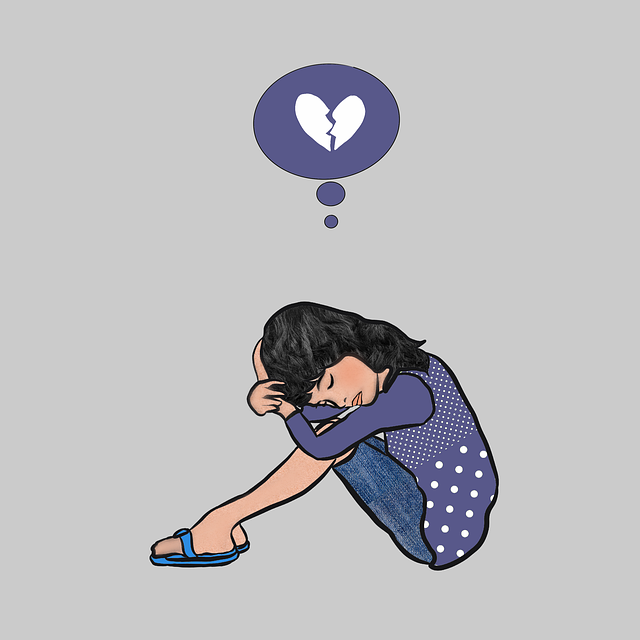In Oregon, civil commitment proceedings balance public safety with individual rights. Understanding this process is crucial, especially for those facing potential involuntary treatment. Multnomah County Legal Aid offers specialized legal representation, ensuring access to justice for low-income individuals. Mental health law advocates guide clients through assessments, court hearings, and appeals, challenging improper procedures and advocating for the best interests of the individual. Their expertise in state laws empowers them to protect constitutional rights during complex civil commitment proceedings.
“Navigating complex legal waters can be daunting, especially when it concerns civil commitment hearings and appeals. This comprehensive guide aims to demystify the process, focusing on Oregon’s unique framework. We delve into understanding civil commitment proceedings from a defense perspective, offering a step-by-step breakdown of the state’s process.
For those in Multnomah County seeking mental health law advocacy, we explore the crucial role of legal representation in safeguarding your rights. Additionally, this article navigates appeals, ensuring justice and fairness throughout, while highlighting important rights specific to mental health cases.”
- Understanding Civil Commitment Proceedings: A Foundation for Defense
- Oregon's Civil Commitment Process: A Step-by-Step Guide
- Mental Health Law Advocacy: Protecting Your Rights in Multnomah County
- The Role of Legal Representation in Civil Commitment Cases
- Navigating Appeals: Ensuring Justice and Fairness
- Rights in Mental Health Cases: What You Need to Know
Understanding Civil Commitment Proceedings: A Foundation for Defense

Civil commitment proceedings are a critical aspect of Oregon’s mental health law system, providing a framework for individuals with severe mental illnesses to receive appropriate treatment and support. Understanding this process is essential for anyone involved, especially those facing potential civil commitment and their legal advocates. The Oregon civil commitment process involves several steps, from initial evaluations and court orders to hearings and appeals, each requiring meticulous attention to detail.
Multnomah County Legal Aid plays a pivotal role in ensuring that individuals’ rights are protected during these proceedings. Adequate legal representation for civil commitment cases is paramount, as it enables those facing commitment to navigate the complex system, challenge any improper procedures, and advocate for their best interests. Mental health law advocacy groups and experienced attorneys can provide vital guidance, helping clients understand their rights and options throughout the process.
Oregon's Civil Commitment Process: A Step-by-Step Guide

In Oregon, the civil commitment process is a legally complex procedure aimed at balancing public safety with an individual’s right to due process and treatment in mental health cases. This step-by-step guide provides a simplified overview for those navigating Oregon’s civil commitment proceedings defense. It begins with an assessment by a qualified professional who determines if an individual meets the criteria for involuntary commitment, often based on concerns regarding their safety or the safety of others. If the criteria are met, a petition is filed in court, initiating the legal process.
The next phase involves a hearing in Multnomah County, where both the petitioner (usually a healthcare provider or family member) and the individual being committed have the right to legal representation from a mental health law advocacy group or private attorney. During the hearing, evidence is presented, including medical records and expert testimony. The court then decides whether to grant or deny the petition. If committed, individuals have rights and protections under Oregon’s civil commitment process, including the right to appeal if they believe their commitment was unjustified or improper. Multnomah County legal aid plays a crucial role in ensuring these rights are respected, particularly by providing legal representation for those who cannot afford it.
Mental Health Law Advocacy: Protecting Your Rights in Multnomah County

In Multnomah County, Oregon, navigating the complex landscape of civil commitment proceedings can be daunting, especially for individuals facing potential involuntary treatment. Mental Health Law Advocacy plays a crucial role in protecting your rights during this critical period. Organizations like Multnomah County Legal Aid offer specialized legal representation tailored to the unique challenges of mental health cases. Their experts guide clients through every step of the Oregon civil commitment process, ensuring their voices are heard and their constitutional rights upheld.
These advocates are well-versed in state laws and regulations governing civil commitment, empowering them to challenge any procedural errors or violations that may occur. By providing legal representation for civil commitment, they enable individuals to navigate these complex proceedings with confidence, aiming to secure the best possible outcome while preserving their autonomy and dignity.
The Role of Legal Representation in Civil Commitment Cases

In civil commitment proceedings, especially in Oregon’s Multnomah County, having robust legal representation is paramount to ensuring a fair and just outcome for individuals facing mental health challenges. Legal representation plays a crucial role in defending against civil commitment, which often involves complex legal processes and stringent standards. Mental health law advocates specialize in navigating the intricacies of these cases, understanding the rights of those with mental illness, and providing robust defense strategies. They are equipped to challenge the evidence presented by the prosecution, advocate for alternative treatment options, and ensure due process is followed throughout the Oregon civil commitment process.
Legal representation can significantly impact an individual’s experience during commitment hearings and appeals. It provides a shield against potential procedural errors, ensures that rights are not infringed upon, and offers a powerful voice for those who may struggle to communicate their needs or understand the legal complexities of the situation. Multnomah County legal aid organizations play a vital role in providing access to such representation, especially for low-income individuals facing civil commitment, by offering services tailored to the unique challenges presented by mental health law advocacy.
Navigating Appeals: Ensuring Justice and Fairness

Navigating Appeals: Ensuring Justice and Fairness in Oregon Civil Commitment Proceedings
In Oregon, appeals related to civil commitment proceedings are a vital part of ensuring justice and fairness within the mental health law system. For individuals facing potential or ongoing civil commitment, having competent legal representation is crucial. Mental health law advocacy groups and organizations like Multnomah County Legal Aid play a critical role in providing support and guiding clients through complex legal processes. They assist in understanding their rights in mental health cases, ensuring that every step of the Oregon civil commitment process adheres to due process and legal standards.
Effective appeals require thorough knowledge of mental health legislation and case law. Legal representatives should be adept at presenting evidence, challenging adverse testimony, and arguing for or against civil commitment extensions. By employing robust legal strategies, they can safeguard individuals’ rights and prevent unnecessary or inappropriate commitments. This is especially important given the significant implications of civil commitment, impacting personal freedoms and future prospects.
Rights in Mental Health Cases: What You Need to Know

In Oregon’s civil commitment process, individuals facing involuntary placement have specific rights under mental health law advocacy. Understanding these rights is crucial during civil commitment proceedings defense. Those involved should be aware of their ability to challenge the commitment and appeal if necessary, ensuring due process and legal representation for civil commitment.
Multnomah County legal aid plays a significant role in supporting those with limited resources by providing guidance and assistance throughout the Oregon civil commitment process. Individuals have the right to consult with attorneys who specialize in mental health law advocacy to protect their interests and ensure they are treated fairly within the system. Knowing what rights apply can empower individuals or their representatives to navigate the complex legal landscape effectively.






